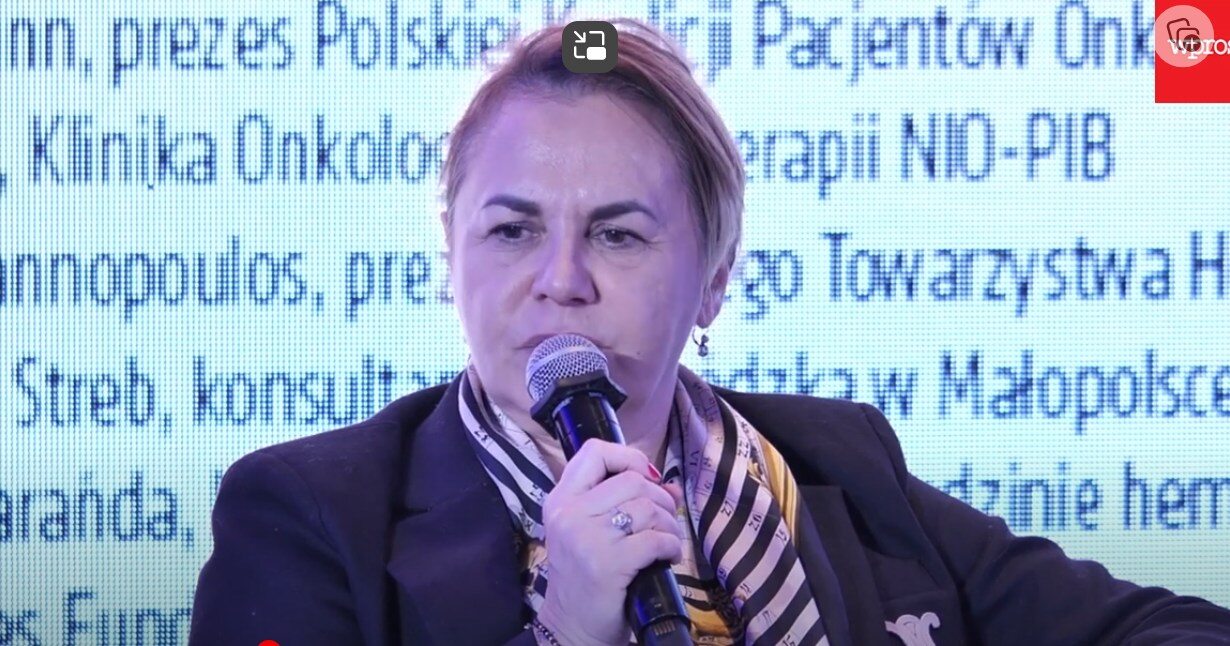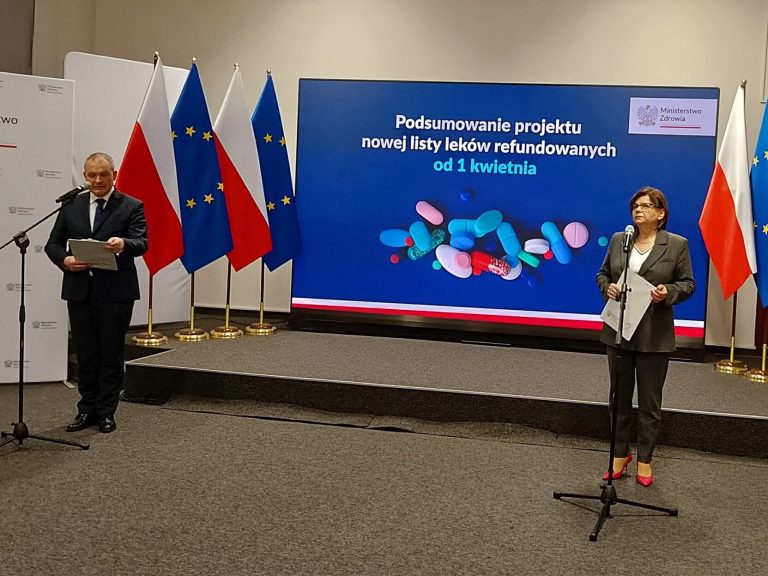Aggressive, diagnosed late: bile duct cancer. There is first hope for patients

In 8 out of 10 cases, bile duct cancer is diagnosed in the inoperable stage. The disease has an aggressive course, and only a few percent of patients survive five years. Recently, the first option that gives patients a chance to extend their lives has appeared: a combination of immunotherapy and chemotherapy, says Dr. Joanna Streb, oncologist. – We are waiting for it to be made available in Poland – notes Iga Rawicka from the EuropaCalon Polska Foundation.
Cholangiocarcinoma is a rarely diagnosed cancer. The most common symptoms are jaundice, abdominal pain, and weight loss – they usually indicate an advanced stage of the disease. The most effective treatment method is its surgical removal, but even among this group of patients, the recurrence rate remains high. Only 1 in 20 patients survives for 5 years.
A chance in immunotherapy
– Patients usually come to the doctor when they have symptoms such as jaundice and skin itching. In the world, only about 30 percent cases, this cancer can be operated on; in Poland this percentage is even lower – says Joanna Streb, M.D., provincial consultant in the field of oncology in Małopolska, specialist in clinical oncology from the University Hospital in Krakow.
There are no screening tests to detect bile duct cancer earlier, and the cancer itself develops very quickly. What is also disturbing is that the incidence of this disease is increasing, as is the mortality rate.
Treatment in the advanced stage is ineffective, palliative, and is mainly aimed at improving the quality of life of patients. – Until recently, treatment options were mainly based on chemotherapy. Clinical trials with many new drugs did not improve the situation, and no new drugs were registered. Only recently have the first research results been published, which give us hope that there will be a breakthrough in this cancer, as in others. The use of a monoclonal antibody (durvalumab) showed a significant extension of the time to disease progression, notes Dr. Streb.
Thanks to such treatment, almost three times as many patients survive for a year without disease progression, and more than twice as many patients survive for two years from the moment of diagnosis of this cancer, while improving their quality of life. Currently, both global and European guidelines (NCCN, ESMO) clearly indicate the use of immunotherapy in combination with chemotherapy as the preferred option.
In Poland, such treatment is not yet reimbursed, but durvalumab itself is well known for the treatment of lung cancer, so doctors already have experience in its use. – In several centers we had the opportunity to use this treatment in biliary tract cancers as part of extended access procedures. For many years, it has been the first drug to have positive research results when it comes to immunotherapy in bile duct cancer, says Dr. Joanna Streb, who had the opportunity to use such treatment on patients as part of clinical trials.
– These were patients with advanced cancer, some of them continue treatment; As you can see, it is effective in their case. The quality of life of patients has also improved, says Dr. Streb.
Education is necessary
Another problem for patients is the prolonged diagnosis, the lack of specialized centers for the treatment of this cancer, and often the lack of knowledge of doctors. Patients often have no place to obtain information about treatment.
– We will soon launch the “yellow roads” educational campaign; We want to talk about this cancer because patients feel lost after hearing the diagnosis.
They are also terrified of the long time from diagnosis to starting treatment: sometimes even several months, and the progression of the disease is very rapid. Patients expect hope, effective and quick diagnosis, but above all, treatment – emphasizes Iga Rawicka, president of the EuropaColon Polska Foundation.
Patients with digestive system cancer are in a difficult situation: apart from colorectal cancer, these cancers cannot be diagnosed early.
– Patients also expect hope and treatment, so we hope that the new treatment regimen will be available in Poland as soon as possible – notes Iga Rawicka.
The statements come from the debate on immunotherapy during the Wprost Health Visionaries conference







